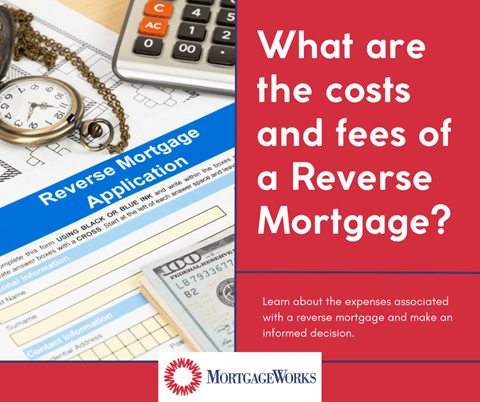
Ever danced with a loan that pays you? Sounds like a financial fairytale, right?
Benefits and risks of reverse mortgages – they’re not your typical bedtime story. These loans are like mirrors reflecting the equity in your home; turn them one way and they can show you a world of possibilities, flip it another, and the reflection could be less kind.
Say hello to Tom Selleck on those TV ads; he’s not just selling charm. He’s pitching what could be either a golden ticket for retirees or an unexpected slide down the rabbit hole.
I’m betting my two cents here: You’ve heard whispers about this mystical mortgage but haven’t grasped its full measure yet—let me guide you through this maze.
Join us on this journey as we reveal the treasures and tackle any possible hiccups these gifts may conceal.
Table Of Contents:
- HUD-approved housing counselors
- Assessing Your Candidacy for a Reverse Mortgage
- Age and Homeownership Requirements
- Financial Assessment for Reverse Mortgage Eligibility
- Reverse Mortgage Costs and Fees
- Initial Fees and Loan Charges
- Ongoing Costs During the Loan Term
- Conclusion
MortgageWorks offers financing for new home purchases, refinance, home equity, investment property, construction, and a wide variety of loan program options to fit your every need. Servicing California and the entire Coachella Valley, including Palm Springs, Cathedral City, Rancho Mirage, Indian Wells, Palm Desert, Desert Hot Springs, La Quinta, Indio and Coachella. Call Art today @ (760) 883-5700
HUD-approved housing counselors
These counselors provide guidance and education to homeowners considering a reverse mortgage, helping them understand the benefits and risks involved.
So, before you grab your maracas and start shaking up your finances, take the time to learn about reverse mortgages and how they can impact your Coachella Valley home. It’s important to weigh the benefits and risks to determine if a reverse mortgage is the right choice for you.
Assessing Your Candidacy for a Reverse Mortgage
If you’re peeking over the fence to see if the grass is greener with a reverse mortgage, knowing whether you’re even allowed in that yard is key. Imagine your golden years as an exclusive club where age isn’t just a number—it’s your VIP pass. For starters, you need to be at least 62, own your home outright, or have substantial equity built up.
Age and Homeownership Requirements
Diving deeper into this ‘senior scene’, let’s talk specifics about age and ownership. It turns out around half of folks applying are under 70—still young at heart but old enough to cash in on their home equity without monthly payments breathing down their necks.
Your crib needs to be more than just where you crash after bingo night; it should also hold sufficient value since that’s what gives you borrowing power in the first place. And by sufficient, we mean enough so that when lenders do the math using an equity conversion mortgage calculator, they give two thumbs up.
Financial Assessment for Reverse Mortgage Eligibility

Moving on from age and abode qualifications, there’s another hurdle: financial assessment—a fancy term meaning lenders will put on their detective hats and dig through your finances faster than Tom Selleck can pitch a reverse mortgage spot.
Lenders want assurance that besides being able to host killer pool parties (because who doesn’t love those?), you’ve got what it takes financially speaking. They’ll ensure you can keep paying property taxes, homeowners insurance premiums—and don’t forget those sneaky homeowner association fees—if applicable. This bit might feel like someone snooping through your medicine cabinet because they’ll look at everything from income sources, including social security or supplemental security income.
Key Takeaway:
Thinking about a reverse mortgage? You’ve got to be over 62, own your home, or have some serious equity. Remember, lenders will check if you can handle the ongoing costs like taxes and insurance before saying yes.
Reverse Mortgage Costs and Fees
Initial Fees and Loan Charges
Taking the plunge into a reverse mortgage means getting familiar with several upfront costs. Think of it like paying for entry at an amusement park; you pay before enjoying the ride. First, there’s the origination fee—kind of like buying your ticket to financial flexibility—which lenders charge to set up your loan.
Closing costs are another hurdle—they cover everything from appraisals that size up your home’s value to pesky paperwork fees. Just as when you’re shelling out cash for snacks on carnival grounds, these closing costs can add some weight to your initial expenses.
And let’s not forget about the insurance premium—a necessary evil that acts as a safety net for both you and the lender. This cost ensures that even if things go south with property values or life expectancy estimates, nobody ends up in hot water financially.
Ongoing Costs During the Loan Term

Moving beyond those first steps, owning a reverse mortgage is similar to having a pet—it comes with ongoing responsibilities. Monthly payments aren’t part of this gig since we’re flipping traditional mortgages upside down here. But other regular expenses will nudge their way onto your monthly budget.
Lender charges such as servicing fees stick around during the entire term of your loan; think of them like feeding Fido every day because consistency is key.
You’ve also got mortgage insurance premiums ticking away quietly in the background—not quite stealthy ninjas, but close enough given how easy they are to overlook amidst all other homeowner duties.
Note: Remember Tom Selleck reassuring us about no surprises? Well, staying on top of these numbers helps keep his promise true.
In my years helping homeowners navigate through their golden years right here in Coachella Valley, I’ve seen firsthand how important it is to have clear-cut info about these costs upfront—because who likes diving headfirst into murky waters?
Key Takeaway:
Diving into a reverse mortgage? Get ready for upfront costs like origination fees and closing costs, much like paying for entry before the fun begins. Remember, ongoing expenses such as servicing fees and insurance premiums are part of the deal—keeping track helps avoid financial surprises down the road.
Conclusion
So, you’ve dipped your toes into the waters of reverse mortgages. You’ve seen that these loans can provide a cash flow for seniors, yet they come with their own set of strings.
Weighing up benefits and risks is key. These financial tools can help manage expenses without monthly payments, but remember, costs like insurance premiums and property taxes still knock on your door.
Evaluating eligibility means looking at age, home equity, and more than just immediate needs. It’s about securing peace of mind for tomorrow.
Benefits and risks of reverse mortgages go hand in hand—understanding both could mean keeping your Coachella Valley oasis secured or risking its loss over time.
Dive deep before you leap. That way, the decision to embrace this reflection of equity conversion comes from a place informed by clarity—not simply swayed by glossy ads or fleeting wants.

